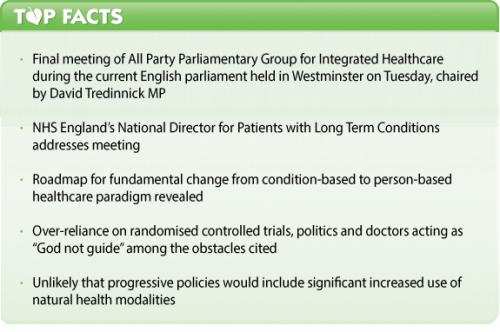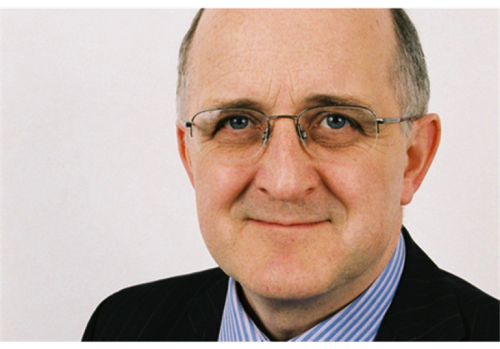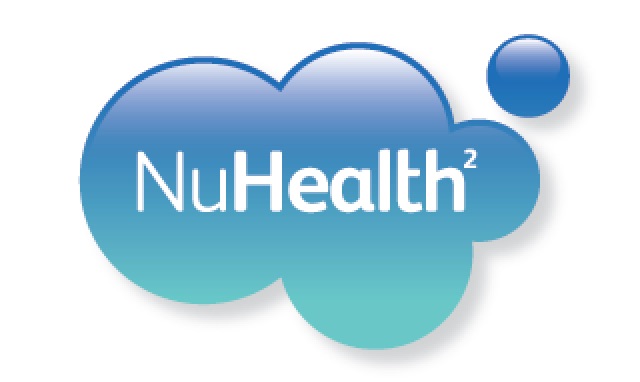Content Sections
By Rob Verkerk PhD
Founder, executive and scientific director
British Conservative MP, David Tredinnik, has been the most unashamedly pro-natural health stalwart in Westminster. He has also been chair of the All-Party Parliamentary Group on Integrated Healthcare (PGIH) since 2002. He has fought hard on a wide range of issues affecting consumer and patient choice, including campaigns on the EU Food Supplements Directive to the regulation of practitioners of herbal medicine and non-European traditional systems of medicine.

Last night, in the Houses of Parliament, the PGIH held its last meeting, at least during the current Parliament. The invited speaker was NHS England’s National Director for Patients with Long Term Conditions, Dr Martin McShane. For many of the integrated health and complementary medicine leaders listening, Dr McShane’s speech was refreshing at least. For me, I found myself comparing Dr McShane’s mission to that of the eight musicians who continued playing on the deck of the Titanic as the ship went down in the North Atlantic. While the NHS’s fate may be different from the Titanic, it has become very clear to independent analysts, such as the King’s Fund, that a significant change in direction is required to avert disaster.

Dr Martin McShane, National Director for Patients with Long Term Conditions, NHS England
Exactly how this is done from the perspective of lifestyle medicine and integrated healthcare, is of course the central theme of our unique Nuhealth2 think tank summit this weekend in London. There are still a few sponsored places available should any of our readers wish to engage. Online bookings can be made at www.nuhealth2.org.
Person-centred healthcare
All progressive healthcare reformers share the view that healthcare must move to being centred around the individual. It’s often referred to as ‘patient-centred healthcare’. Dr Mark Hyman, physician and chairman of the Institute for Functional Medicine, is unsurprisingly a big proponent of patient-centred care. James Maskell is another leading advocate US-side. What’s more incongruous is that the UK’s National Health Service (NHS) also claims to be an advocate; in fact, it’s written into the NHS Constitution. Sadly, it seems many patients’ experiences are somewhat at odds with this commitment.
But should we be talking about patient-centred care anyway? A ‘patient’ typically denotes someone who is already in a diseased state. If healthcare systems are to migrate from being disease management systems to systems that help and guide people to wellness, or keep them well, then perhaps we shouldn’t be talking about patients at all. In that vein, it was refreshing to hear Dr McShane frequently, and effortlessly, speak of a requirement for the healthcare system to be “person-centred”. Forward thinking, that. What impresses more though, is Dr McShane isn’t just giving the notion lip service. He told his audience in Wesminster last night, “I can email my bank, yet you can’t email your GP…..the problem is that we’re still engaged in condition-based medicine and people are not conditions.” He said he thought it was a travesty that British citizens don’t have access to their medical records. Millions of Britons agree.
“Guide not God”
Dr McShane was adamant about the need to change the paradigm from doctors acting as ‘Gods’ to one in which doctors act as “guide not God”. More music. He said that the healthcare system hasn't yet embraced giving people the control of their lives as much as they want, that doctors should act as “guide not God”, their role being to help people navigate a complex system in which the individual in question is central.
An electronic record provides the perfect reference point for an individual. We can all access our own bank accounts and a host of other personal data online. But we can’t access our medical records, for many people probably the single most important repository of personal data.
In his efforts to understand the factors that gave birth to and sustained the condition-based healthcare model (AKA disease management system that manages symptoms more than it does the underlying causes of disease), McShane identified four main drivers: politics, policy, measurement and incentives.
To ignore politics as a driver of the current status quo in mainstream healthcare is like pretending we don’t see the elephant in the room. Politics then drives policy. We need measurement to know where we’re at, and that means not just in terms of conditions, but also from the perspective of the individual’s experience. And we need incentives to help people to stay on track and especially to promote prevention. Four more ticks to Dr McShane.
“Guidelines not tramlines”
The next line of harmony came from Dr McShane’s recognition that guidelines, in particular those set by the National Institute for Health and Care Excellence (NICE) have been turned into rules. Apparently master of the soundbite, he said doctors need “guidelines not tramlines.”
Yet, because the guidelines have become so inflexible, many doctors dare not stray from them. They have witnessed colleagues being grilled by fitness to practice panels at the General Medical Council (GMC), and they've seen some go down. Outcomes vary from warnings to restrictions on, or even suspension of, a doctor’s license to practise.
This was an area Lord Maurice Saatchi was equally concerned about during his work on the Medical Innovation Bill. Former Lord Chief Justice of England and Wales, Lord Woolf, a big supporter of the Bill, wrote in the The Telegraph on 24 April 2014, “At the moment, the doctor’s hands are tied – by concerns about professional reputation and potential negligence claims. That needs to change…. Doctors don’t by nature want to step out of line, risk their professional reputation, or being labelled a quack by colleagues.”
Sadly, the Bill's progress has now stalled.
In the same article, Lord Woolf also stated, “…what I do know about, from sitting as a judge, are the cases where doctors are sued for negligence because they have innovated in the treatment they offer, rather than following generally-accepted medical standards.” Embarrassingly for Lord Woolf, he has not been able to substantiate this comment. It is interesting that there are a number of cases in which the prescribing of non-standard therapies have been labelled ‘quackery’ despite them being demonstrably effective and by nature, innovative. Doctors presribing such interventions have then either been hounded by the GMC or been struck from the GMC register. We know of one case that is current. The problem is that the terms “innovation” and “quackery” are far from absolute – both are open to wide interpretation.
As we’ve seen during these last few days with the case of 5-year-old Ashya King, mainstream doctors will often be critical of a treatment that is at odds with their recommended protocol even if the outcome is positive.
When I thought the soundbites might be over, out rolled another. Dr McShane, speaking on the ‘tramlines instead of guidelines’ theme said these have “de-professionalised the medical profession.” Others have commented that general practitioners— faced with huge time pressures on their consultations — act as little more than glorified drug company salespeople.
“RCTs get eaten in the wild”
A big chord was struck when Martin McShane spoke of his misgivings about the excessive reliance on randomised controlled trials (RCTs). These trials, the lifeblood of drug licensing, represent an experimental tool that gives information about how an intervention functions in an experimental situation. McShane likened RCTs to caged animals, and he said ultimately they should be tested (validated) according to how they perform in the wild (i.e. the real world). We’ve been arguing this very point for a long time. McShane said that in his experience many RCTs get eaten in the wild. Then, let's not forget the evidence of harm from mainstream medicine, and the low level (11% according to the journal Clinical Evidence) of mainstream medicine interventions that have been proven to be beneficial, even using RCTs.
McShane advised that we all review David Sackett and colleagues original definition of Evidence Based Medicine published in JAMA in 1992. We often have to remind people of this ourselves. And like us, McShane argued one of the most important measurements should come from patient experience. Patient experience is not a new area for the NHS, but we hear of patients on an almost daily basis getting short shrift from doctors in the NHS. Some of the slowness to change must be down to the NHS’s sheer size. With its 1.7 million staff, it sits as the fifth largest employer in the world. We all know that supertankers can’t turn quickly, but it’s always good to know there’s the will somewhere to make it turn.
Framework for complex care
Firmly from his standpoint as NHS England’s National Director for Patients with Long Term Conditions, Dr McShane made clear that a much more comprehensive framework was required for complex care of chronically-diseased patients. He spoke of the importance of empathy and compassion among healthcare workers. He spoke also of the power of the therapeutic relationship and the need to integrate guidance linked to helping the physical body with that of our emotional health.
Over and over again (remember it was more musical than annoyingly repetitive) he stressed the value of doctors acting as guides, with empowered patients sitting firmly at the centre, controlling his or her choices. He went on to stress the need to find a more effective system for professional collaboration, with generalists and specialists working closely together, within primary care, in hospitals and in the community. He cited a few examples where this was already happening.
Perfect plan? Unfortunately not
Everything I’ve said about Martin McShane’s inputs to the final PGIH meeting of this Parliament have so far been extremely complimentary. That’s because so many of the concerns raised by the good doctor are shared by ourselves, along with many others with deep concerns about the current direction of mainstream healthcare—and not just in the UK. It’s exciting to hear someone so senior has these ideas, most of which are also shared by none other than Simon Stevens, NHS England’s chief executive. Elements are even incorporated into the Five-Year Forward View.
I need to try not to be too cynical about this, but of course thee is a real possibility that much of this thinking could be window dressing and part of an elaborate public relatons exercise. Oh yes, I'm trying not to be cynical.
Speaking of things complementary, or even alternative, that’s where you’ll find the rub. These proposed changes to structure and process, if effected in good time (unlikely), could make a significant difference to patients. But in our view, the changes would be nothing like as great as those that would come from openly embracing what large swathes of the public have been asking for over many years; that’s the ability to use food, natural products and so-called complementary and alternative medicine (CAM) modalities in the NHS.
The mood changed when David Tredinnick asked Martin McShane about whether he would accept homeopathy as part of the roll out given lots of patients, Mr Tredinnick included, choose to use homeopathic products. McShane cautiously responded saying, “I’m afraid I have to be honest, but as far as I’m concerned, the jury is still out on homeopathy.” Perhaps he hadn't had a chance to study the science? Whatever the reason for this view, you could tell he was trying to be kind. It would be unsurprising if a similar view wasn't’ also held on other natural modalities, such is the lack of attention paid by the bulk of mainstream medics to either the published data on natural products or the years of extraordinary clinical experience among CAM professionals and their patients or clients.
That’s exactly why we at ANH have long argued it is so crucial better models for measuring effectiveness ‘in the wild’, as McShane refers to it, are developed. It’s after all people’s experiences in the wild that drive an ever growing number of health professionals and members of the public to subscribe to natural health as their first-line approach to managing human health.
Thank you, David Tredinnick MP
It’s reassuring to know that if David Tredinnick gets voted back in as a Member of Parliament in May, he won’t be walking away from this particular issue. All of us at ANH, and thousands in the natural products and CAM sectors, along with many more members of the public, are indebted to the member for Bosworth for what he has done for the cause over the 15 years especially. Citizens of the Bosworth constituency; you know what you need to do come May!

David Tredinnick MP, Member for Bosworth
ANH in the front lines of the conversation – you can be there too!
If these issues interest you, and you can get to London this Saturday, 28 March, book now online for the NuHealth2 healthcare crisis think tank summit. We greatly look forward to seeing some of you there!








Comments
your voice counts
There are currently no comments on this post.
Your voice counts
We welcome your comments and are very interested in your point of view, but we ask that you keep them relevant to the article, that they be civil and without commercial links. All comments are moderated prior to being published. We reserve the right to edit or not publish comments that we consider abusive or offensive.
There is extra content here from a third party provider. You will be unable to see this content unless you agree to allow Content Cookies. Cookie Preferences